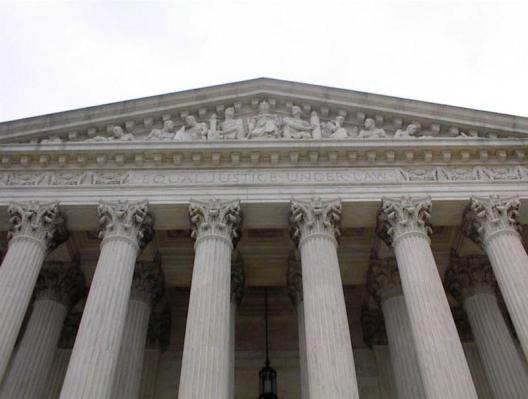Aereo, the company known for not having a plan B, now has to find one after its loss at the Supreme Court this morning. But none of its options are looking very good.
“We did try, but it’s over now,” Barry Diller, one of Aereo’s top investors, told NBC News this morning. Despite Diller’s call of death, some believe the TV streaming service may have a few options left to pursue.
Aereo’s CEO and founder, Chet Kanojia, has not been as defeatist as his key investor. In a statement denouncing the Court’s ruling, Kanojia said the company would continue, although he was vague about how.
“We are disappointed in the outcome, but our work is not done,” he said. “We will continue to fight for our consumers and fight to create innovative technologies that have a meaningful and positive impact on our world.”
Aereo has received almost $100 million in funding over the past several years.
Kanojia made headlines as recently as April when he told the Associated Press the company did not have a plan B. However in an interview with Fortune, Kanojia hinted the company had been thinking about a backup plan, even if it hadn’t been formulated yet. He implied the company could consider paying retransmission fees to broadcasters.
Gus Hurwitz, an assistant professor at the University of Nebraska College of Law, spoke to the Wall Street Journal before the ruling about that possibility, saying the startup had the option “to work with the broadcast industry, instead of trying to disrupt it.”
“Aereo would bring a known and trusted brand and working distribution platform to the market and could, conceivably, license content from local broadcasters,” Hurwitz told the Journal.
Retransmission fees, or the fees broadcasters charge cable companies to carry their signals, are projected to rise in the wake of decreasing advertising revenue, according to the same Wall Street Journal article.
The draw of a service like Aereo is that it frees consumers from the high fees cable companies charge for bundled packages, allowing them to pay for live TV at subscription prices comparable to Netflix or Hulu. Even if the company manages to find a way to work with broadcast companies, it won’t be as cheap. Subscribers currently pay a fee of $8 per month for a base plan, and the service has fewer than 500,000, according to the New York Times.
Aereo’s other option would be to petition to change the copyright laws. The Supreme Court based its ruling on the idea that the company’s use of tiny antennas to capture broadcast signals and deliver them to subscribers’ devices violated existing copyright laws.
Harry Cole, an attorney who has specialized in broadcasting and represented clients before the Supreme Court, told me that this is the “most obvious” plan B Aereo could be considering. He said they might have some weight, considering many subscribers and reviewers have had favorable reviews of the service.
“Moving Congress right now to undertake some kind of significant legislation is a tough order,” he said, expressing that he was skeptical such a measure would pass.
In the wake of the decision, House Energy and Commerce Committee leaders released statements calling for an update to the Communications Act, which was enacted in 1934 and has not been updated in 17 years.
“While the court ruled that Aereo had overstepped, invention and innovation are at the heart of America’s global leadership in communications and technology development,” said committee chairman Rep. Fred Upton, R-MI. “This case underscores the mounting need to modernize the 80-year-old Communications Act, which serves as an important, yet outdated, framework for the communications industry.”
Another option Aereo could pursue to avoid legal hot water over copyright would be to offer only DVR services. In addition to streaming video online, the service also currently offers subscribers the option to record programs.
Cole said Aereo’s other option is to basically buy time. He didn’t know how long it would take for the injunction to set in, but he speculated Aereo’s legal team could try to get the Supreme Court to rehear the issue. Even though Cole called that “the longest of long shots,” it could potentially allow Aereo to continue to operate longer because the Court is approaching its summer recess.
“Once that injunction kicks in, it’s about time to put the tag on the toe,” he said.
